Guides
10 Best VPN Services For The Middle East In 2024 (Free & Paid)
The VPN services recommended in this article can solve many of the issues experienced by those who are living or visiting the Middle East, including internet censorship, geo-restrictions, and online privacy concerns.

Internet censorship in the United Arab Emirates, Saudi Arabia, Bahrain, Egypt, Iran, Syria, Turkey, and other Middle Eastern countries is so widespread that there’s an entire Wikipedia page dedicated to it.
Fortunately for those who are living or visiting the Middle East, there are many VPN services that make it possible to enjoy unrestricted access to the internet even in countries where certain online content is blocked.
To help you select the best VPN service for the Middle East in 2024 and beyond, we’ve tested many popular VPN services and narrowed them down to the top 10 best options.
What Is A VPN And How Does It Work?
The acronym VPN stands for “virtual private network,” a special private network that extends across the public internet, creating an encrypted tunnel for your data to go through. Nobody outside this tunnel, including your internet service provider (ISP) and government monitoring agencies, can’t see what you’re doing online.
The easiest way to establish a VPN connection is to use an online VPN service, such as those recommended in this article. VPN services have servers in many countries around the world (the Middle East region is no exception), and they provide client applications that enable users to connect to them with a simple click.
Why Use A VPN In The Middle East?
We’ve already touched upon what’s arguably the main reason to use a VPN service in the Middle East: internet censorship.
Indeed, some online content is not accessible in many Middle Eastern countries. Examples of commonly blocked content include gambling websites, pornographic sites, news sites, social media platforms, or anti-Islam, anti-government, and anti-censorship sites.
Besides internet censorship, people living in the Middle East also frequently use VPN services to do things like:
- Enhance Their Privacy: A reliable VPN makes it impossible for third parties to monitor your online activity and see which websites you’ve visited and which files you’ve downloaded. This is true even when you’re connected using a public Wi-Fi network that’s not encrypted.
- Access Geo-Restricted Content: Many streaming services and even news websites geo-restrict some or all of their content to make it available only to users who are located in certain countries. With a VPN, you can circumvent such restrictions by making it seem as if you’re located in a different country.
- Work Remotely: Remote work is becoming increasingly prevalent, but so are the threats all remote workers face, such as man-in-the-middle attacks. A VPN is a must-have cybersecurity solution for all remote workers who don’t always enjoy the peace of mind provided by a trusted enterprise network.
- Play Online Games: Would you like to play an online game that’s not available to players who are located in the Middle East? That’s not a problem if you have one of the best VPN services for gaming.
- Hide Their Real Location: Your real IP address can be easily used to reveal your location. If that’s something you’re not comfortable with, then you should use a VPN service to hide it.
As you can see, the reasons to use a VPN service in Bahrain, Cyprus, Egypt, Iraq, Israel, Jordan, Kuwait, Lebanon, Oman, Palestine, Qatar, Saudi Arabia, Syria, Turkey, Yemen, and the United Arab Emirates are numerous, but determining which VPN service is the best can be a challenge.
How To Choose The Best VPN For The Middle East?
Selecting the best VPN for use in the Middle East is somewhat complicated by the fact that some countries, like Iran, regulate VPN usage and don’t allow all VPN services—only government-approved ones. That’s why this article doesn’t recommend just one VPN service but ten.
Once you have found a couple of VPN services that work in your country, you should consider the following criteria to determine which of them can meet your needs the best:
- Servers: Ideally, you want to choose a VPN service that has servers all over the globe because then you can circumvent any geo-restrictions. Since many online services in the Middle East work only with a local IP address, your VPN service should have at least one server in the country where you live.
- Performance: You don’t want your VPN service to make it impossible for you to enjoy any slightly more bandwidth-intensive content because of its poor performance. The good news is that all leading providers make performance one of their top priorities.
- Security: The best VPN services don’t log any user data, implement state-of-the-art encryption, and use automatic kill switch functionally with DNS leak protection to ensure that no private data gets leaked.
- Location: The location of a VPN service provider matters a lot because it determines its legal obligations. What’s more, the so-called Fourteen Eyes countries (the US, the UK, Canada, New Zealand, Australia, Denmark, France, the Netherlands, Norway, Germany, Belgium, Italy, Sweden, and Spain) have intelligence-sharing agreements that may be used to obtain information about VPN users.
- Price: It goes without saying that the price of a VPN service is one of the most important selection criteria. We recommend you set a clear budget a stick to it. It’s also a good idea to look for special discounts, especially around major shopping holidays.
With these criteria in mind, we’ve researched the best VPN Middle East services to help you make the right choice. Let’s take a look at them!
Best VPN Services For The Middle East
Each of the top 10 best VPN services described below can be recommended to Middle Easterners who want to circumvent government censorship, enhance their privacy, access geo-restricted content, work remotely, play online games, or hide their real location.
Note: The prices below are those in effect at the time of writing this article, and they may include temporary discounts.
NordVPN

💵 Pricing: $5.29 a month (with a two-year commitment)
↩️ Money-Back Guarantee: 30 days
NordVPN is one of the most popular VPN services in the world, and not just because of how heavily it is advertised on sites like YouTube. The service actually does deliver on its promise of state-of-the-art security and privacy that don’t require you to sacrifice your download and upload speed.
The users of NordVPN can choose from more than 5,000 fast servers in dozens of countries around the world, including the United Arab Emirates. Unfortunately, access to such a large network of VPN servers doesn’t come cheap, but at least you get a lot of free extras, including malware protection, a password manager, and 1 TB of encrypted cloud storage, among other things.
| Pros: | Cons: |
| – Fantastic performance | – More expensive than alternatives |
| – Intuitive apps for all major platforms | |
| – A huge number of servers | |
| – Great customer service | |
| – Diskless server infrastructure | |
| – 1 TB of free encrypted cloud storage |
ExpressVPN

💵 Pricing: $8.32 a month (with a one-year commitment)
↩️ Money-Back Guarantee: 30 days
ExpressVPN is the most expensive VPN service recommended in this article (unless you’ll get lucky and stumble upon a nice discount), so it must be really good, right? Correct! ExpressVPN has servers in Egypt and Israel (and over 90 other countries), and it’s known for its excellent P2P and streaming support.
Setting up ExpressVPN on a smartphone, tablet, computer, or router is painless thanks to the large library of official client apps and browser extensions. Just know that the service (and many others like it) is owned by Kape Technologies, a digital security software provider that has done some shady things in the past.
| Pros: | Cons: |
| – Great P2P and streaming support | – More expensive than alternatives |
| – Helpful customer support | – Owned by Kape Technologies |
| – Speedy refund process | |
| – Independently audited |
CyberGhost
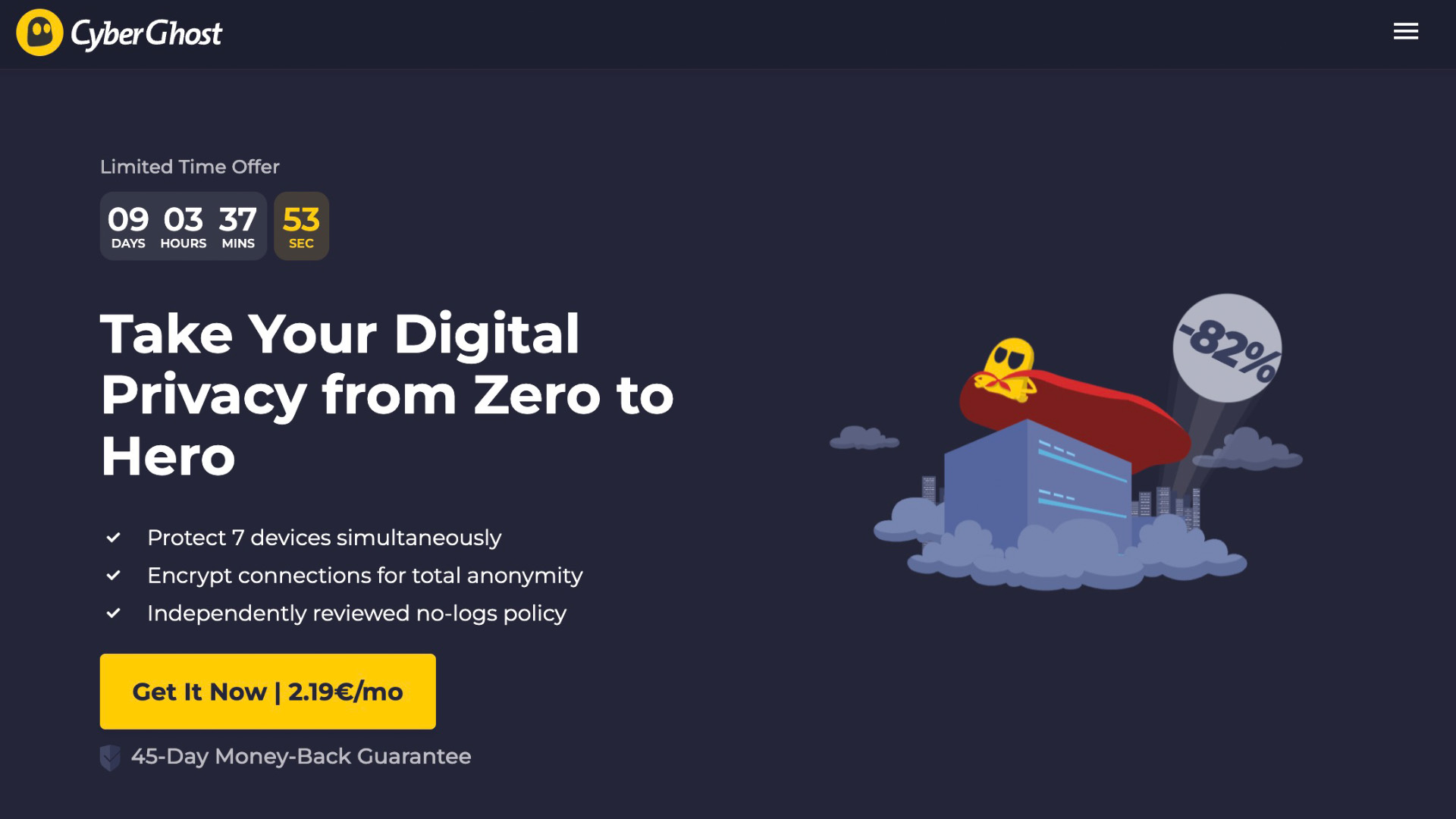
💵 Pricing: $2.19 a month (with a two-year commitment)
↩️ Money-Back Guarantee: 45 days
CyberGhost stands out with its industry-leading 45-day money-back guarantee, giving you plenty of time to evaluate its performance and usability. The service provides native client apps for all major platforms, including Windows, macOS, Android, iOS, and Linux. Routers, smart TVs, Amazon Fire TV Sticks, and game consoles are also supported.
At the time of writing this article, CyberGhost operates nearly 10,000 servers in 91 countries, including Egypt, Israel, Qatar, Saudi Arabia, and the United Arab Emirates. In September 2022, the service finally completed an independent audit, and it can certainly be proud of the results.
| Pros: | Cons: |
| – Industry-leading money-back guarantee | – Owned by Kape Technologies |
| – Inexpensive | |
| – Constantly growing server network | |
| – A huge number of servers |
Private Internet Access
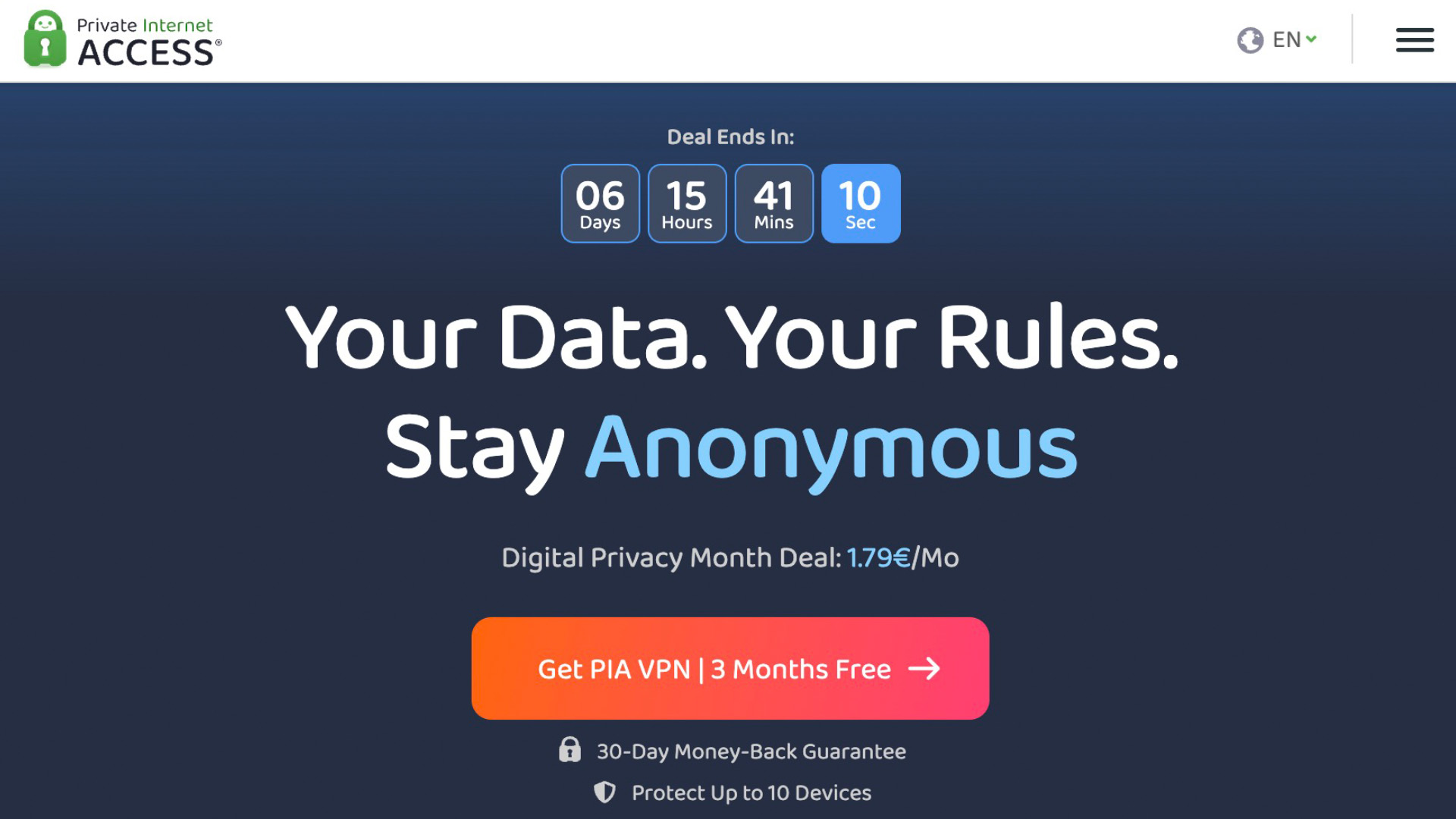
💵 Pricing: $2.03 a month (with a three-year commitment)
↩️ Money-Back Guarantee: 30 days
Private Internet Access is another popular VPN owned by Kape Technologies, and it has WireGuard, OpenVPN, and IKEv2/IPSec servers in Egypt and more than 80 other countries, including all 50 US states.
The service provides dedicated IP addresses to those who would like to enjoy a smoother online experience with fewer interruptions. With a dedicated IP address, you won’t be constantly running into CAPTCHAs and bot checks.
| Pros: | Cons: |
| – Inexpensive | – Average speeds |
| – Audited by a third-party | – Owned by Kape Technologies |
| – Supports ten simultaneous connections | |
| – Provides dedicated IP addresses |
VyprVPN
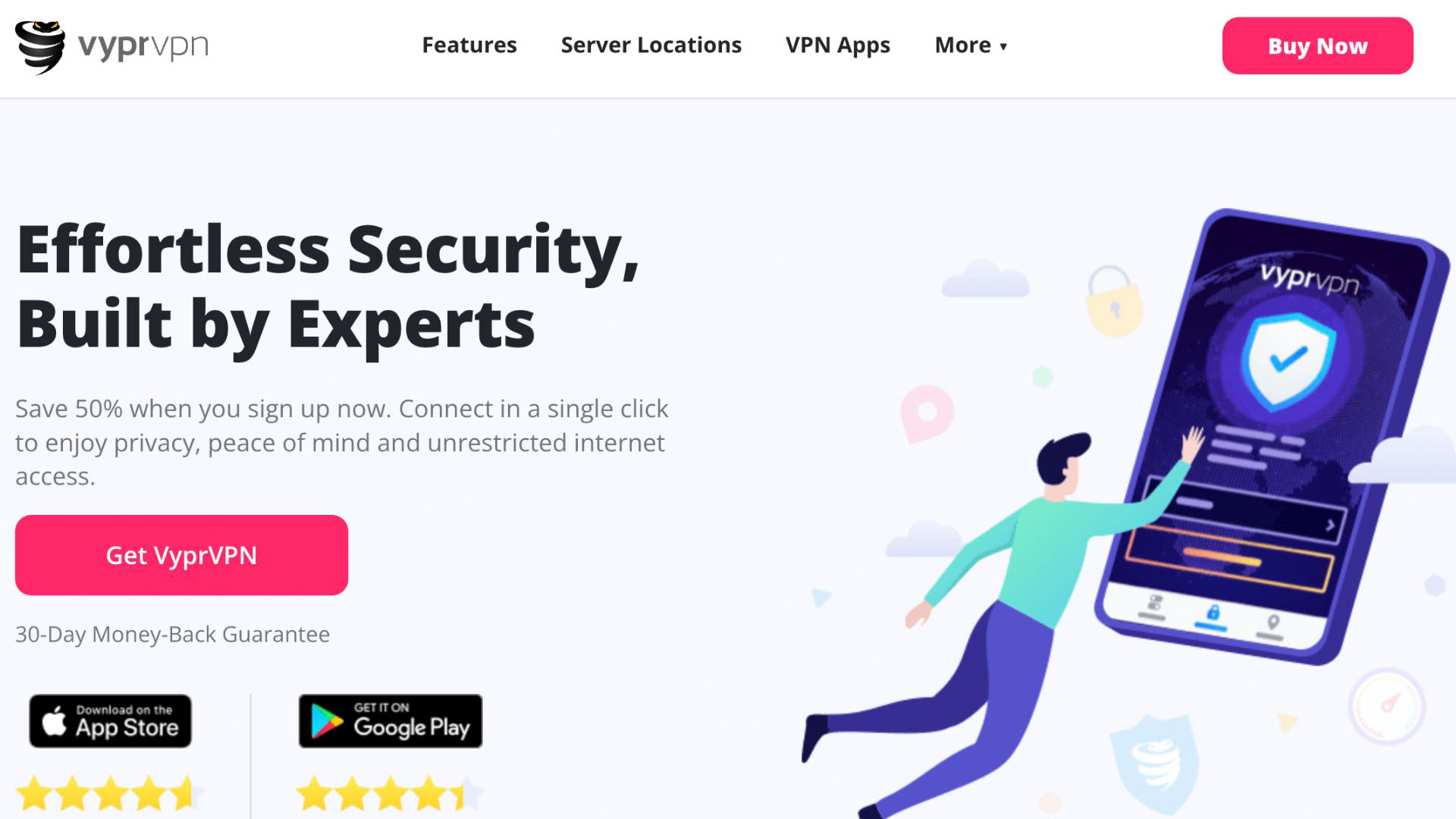
💵 Pricing: $5.00 a month (with a one-year commitment)
↩️ Money-Back Guarantee: 30 days
With servers in Bahrain, Israel, Qatar, Saudi Arabia, and the United Arab Emirates, VyprVPN is an excellent choice for Middle Easterners who want to improve their online security and privacy while retaining a local IP address.
The service does a great job of circumventing various VPN-blocking techniques, and it uses the WireGuard protocol for hassle-free streaming. These and other perks justify its somewhat higher price.
| Pros: | Cons: |
| – Can circumvent VPN blocking | – More expensive than alternatives |
| – Great P2P and streaming support | – Not many servers |
| – Owns its entire server infrastructure | |
| – Many servers in the Middle East |
Surfshark
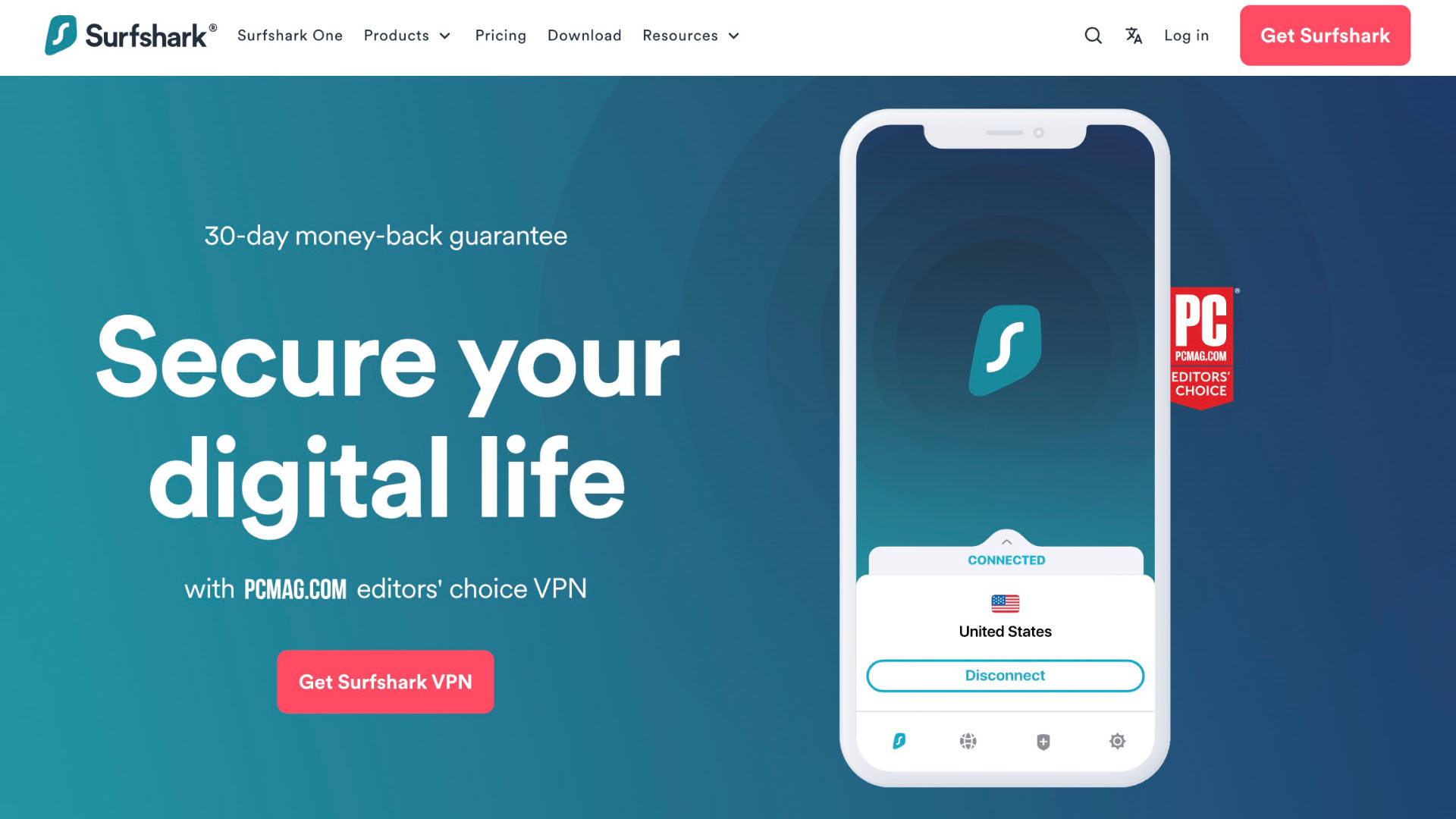
💵 Pricing: $2.30 a month (with a two-year commitment)
↩️ Money-Back Guarantee: 30 days
If you can excuse the fact that Surfshark is located in the Netherlands, which is part of the Fourteen Eyes intelligence-sharing group, then this VPN service should definitely be high on your list because it offers a lot of value for a great price.
All Surfshark plans can support an unlimited number of connections, which means that you could theoretically secure each and every device you own for just $2.30 a month—and that’s certainly a great deal. The service also boasts 3,200+ servers in 100 countries, including Israel, Saudi Arabia, and the United Arab Emirates.
| Pros: | Cons: |
| – Inexpensive | – Located in the Netherlands |
| – Unlimited simultaneous connections | |
| – Servers in multiple Middle Eastern countries |
PureVPN
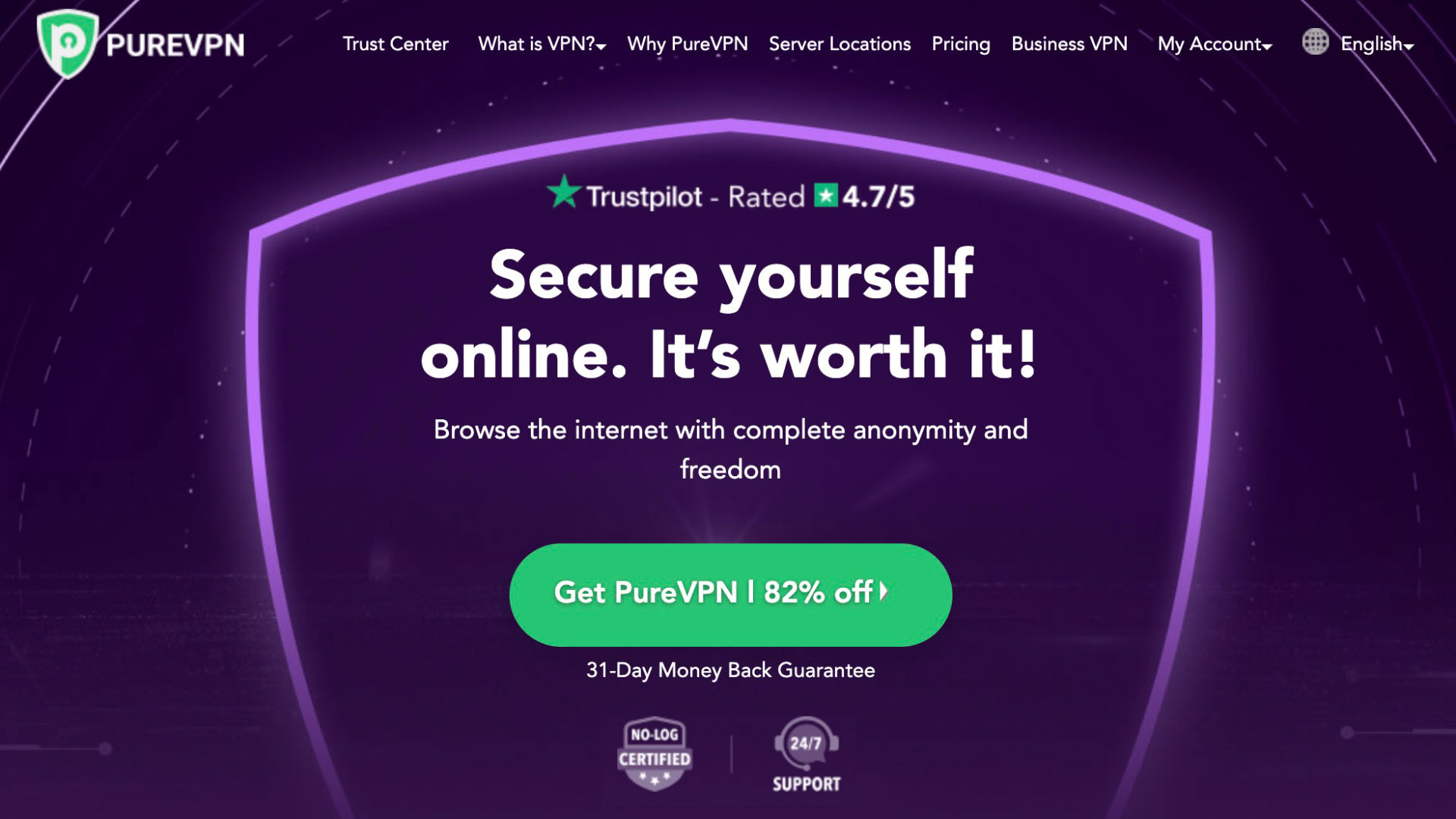
💵 Pricing: $1.99 a month (with a two-year commitment)
↩️ Money-Back Guarantee: 31 days
With prices that start at just $1.99 a month, you would be hard-pressed to find a cheaper VPN service that’s as reputable as PureVPN. Despite its low price, the service operates a massive network of more than 6,500 servers, including servers in Turkey and the United Arab Emirates.
Up to 10 people can use PureVPN to secure an unlimited number of devices with AES 256-bit encryption at the same time. Some advanced features, like split tunneling, are included in the price, while others, such as port forwarding and dedicated IP addresses, are available as paid add-ons.
| Pros: | Cons: |
| – Supports ten simultaneous connections | – Occasional client issues |
| – Verified no data logging policy | |
| – Inexpensive |
PrivateVPN
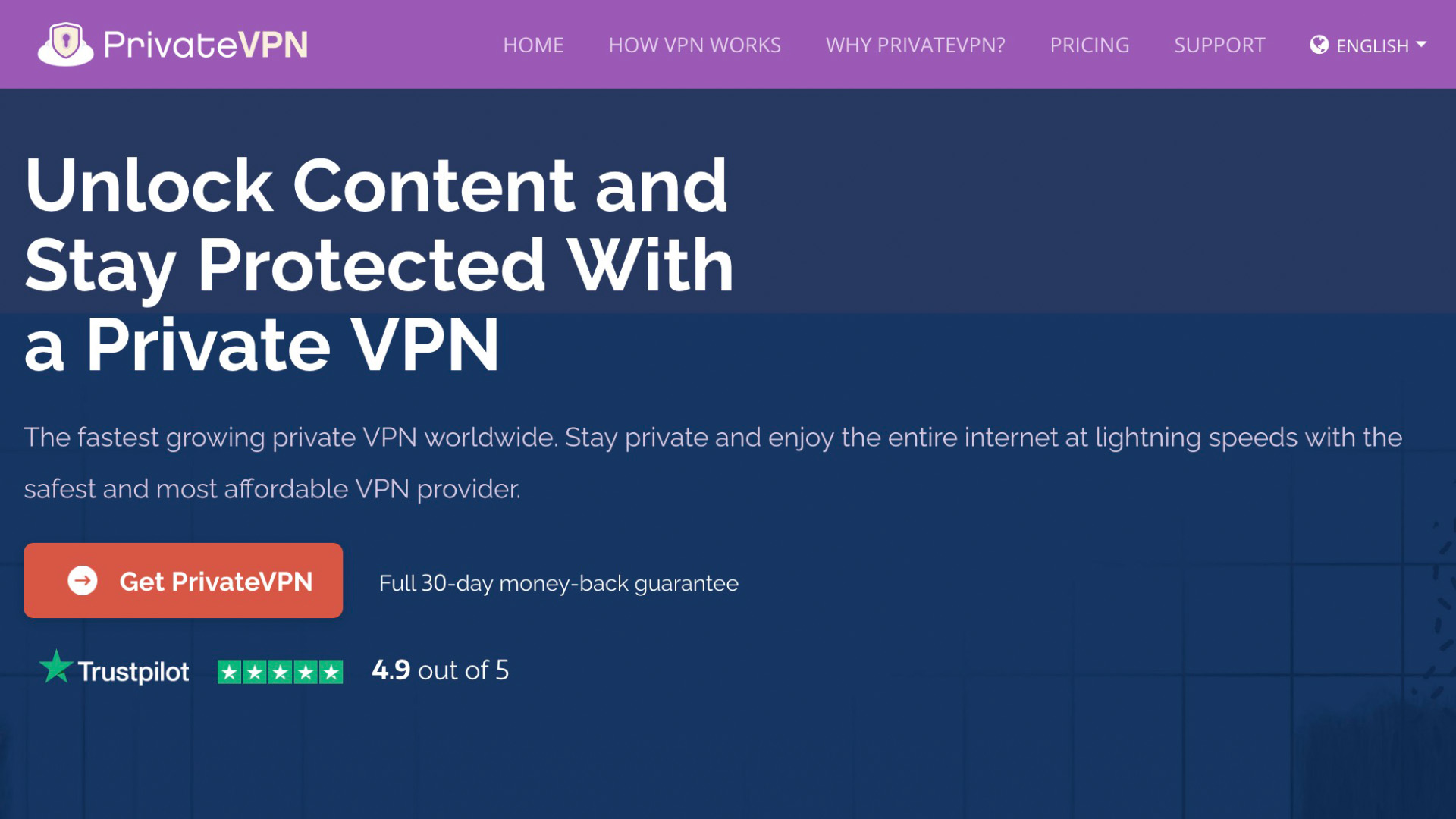
💵 Pricing: $2.00 a month (with a three-year commitment)
↩️ Money-Back Guarantee: 30 days
It’s common for the best VPN services in the Middle East to use 256-bit encryption algorithms, but PrivateVPN takes security to the next level with its military-grade 2048-bit encryption. While the extra bits don’t make much difference in the real-world, they show just how committed PrivateVPN is to protecting its users.
What’s also unique about this VPN service is the fact that it doesn’t outsource customer support at all. Instead, all customers get to talk directly with its in-house developers to get their problems solved quickly and easily. PrivateVPN has a few servers in Israel, Turkey, and the United Arab Emirates, but its server network is on the smaller side.
| Pros: | Cons: |
| – Inexpensive | – Not many servers |
| – Unblocks streaming services | |
| – Military-grade 2048-bit encryption | |
| – In-house customer support |
ProtonVPN
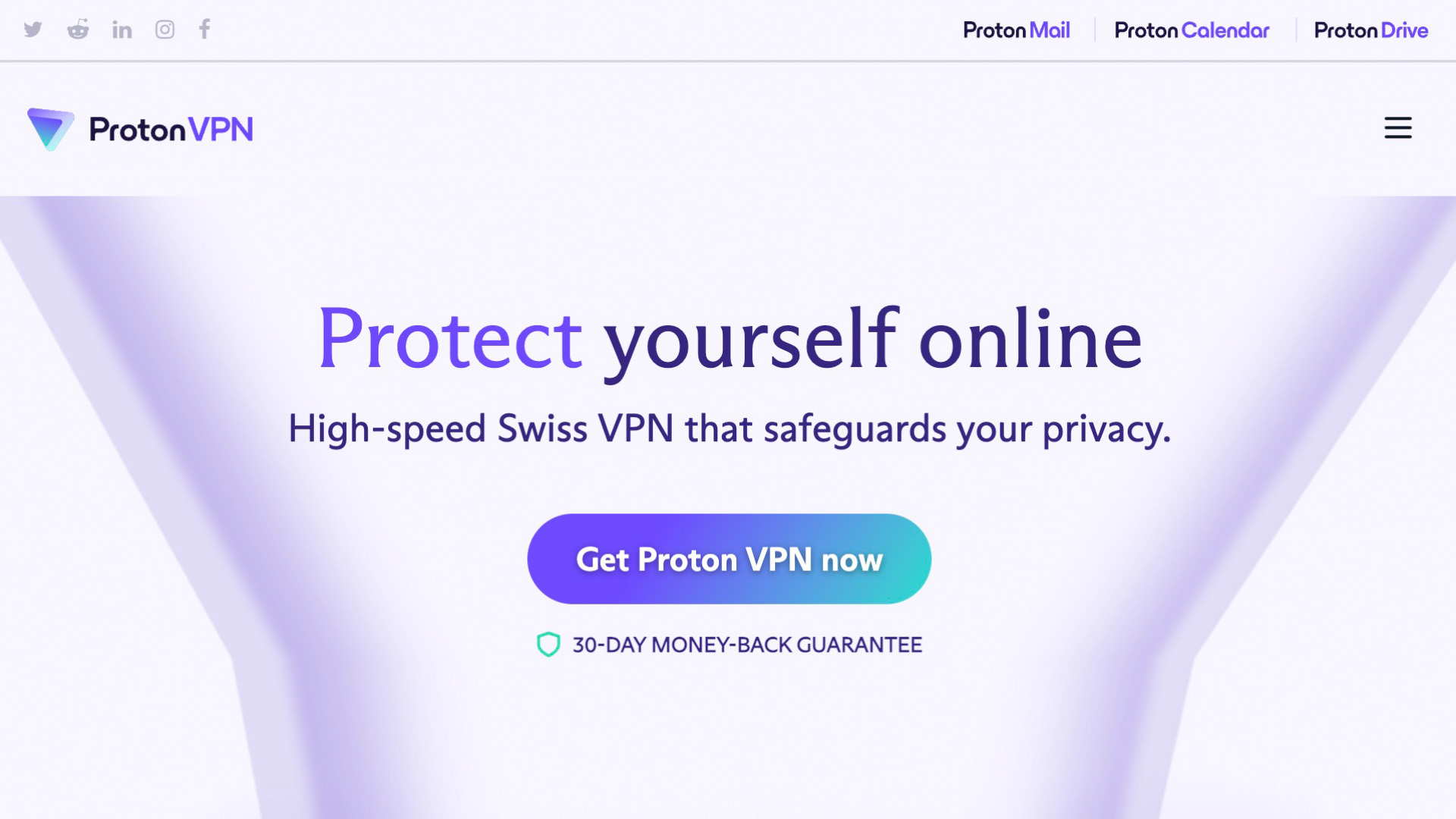
💵 Pricing: $4.99 a month (with a two-year commitment); free plan available
↩️ Money-Back Guarantee: 30 days
If the name of this VPN service sounds familiar, then there’s a good chance that you’ve used ProtonMail, a secure email service that uses end-to-end encryption. As you’ve probably guessed, ProtonVPN and ProtonMail share the same developer, Proton AG. They also share the same focus on security, privacy, and freedom.
ProtonVPN offers a free VPN service that people who are living or visiting the Middle East can use to 100+ servers in 3 countries (US, NL, JP). To unlock all servers and locations ProtonVPN has to offer (almost 2,000 servers in over 60 countries), including Israel and the United Arab Emirates, you need to purchase the Proton VPN Plus plan.
| Pros: | Cons: |
| – Provided by a trusted and respected company | – Doesn’t offer browser extensions |
| – Nicely designed client | |
| – Free plan available |
Mullvad
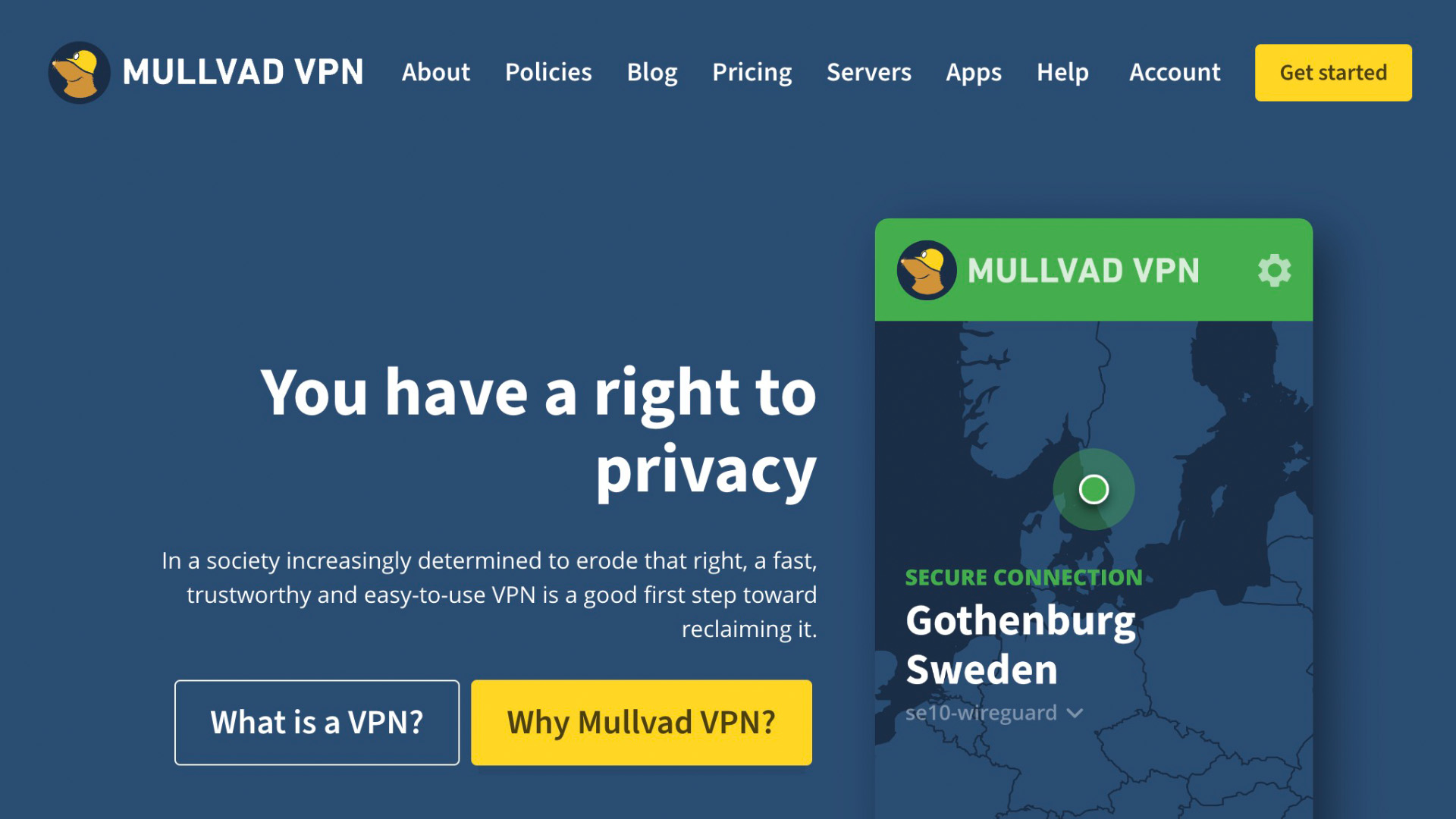
💵 Pricing: €5.00 a month (no commitment)
↩️ Money-Back Guarantee: 30 days
VPN services tend to follow the same template: offering more or less the same features and the same customer experience. Mullvad is a welcome breath of fresh air that does away with pricing plans that force you to make a long commitment just to get a nice discount. Instead, there’s just one plan, and you can stop paying whenever you want.
As such, Mullvad is great if you need a VPN for just a month or two, but it’s harder to recommend to those who rely on a VPN every day. That’s especially true since it doesn’t have many servers in the Middle East (only a few in Israel and the United Arab Emirates). What’s more, the client app leaves something to be desired in terms of usability.
| Pros: | Cons: |
| – Fair pricing model | – More expensive than alternatives |
| – Transparent and highly anonymous | – Pay-as-you-go only |
| – Open-source | – Can’t unblock streaming services |
How To Set Up A VPN For Use In The Middle East?
You don’t need to be a networking expert to set up a VPN for use in the Middle East. You just need one of the recommended VPN services and a few minutes of free time.
Let’s demonstrate how it works using our personal favorite VPN service in the Middle East, NordVPN:
- Go to: https://nordvpn.com/risk-free-vpn/
- Click the Start Now button and choose one of the available plans.
- Create an account and pay for the selected subscription plan.
- Download the NordVPN client app for your device and install it.
- Launch the NordVPN client and log in to your account.
You can now connect to any NordVPN server. To see if your connection is protected, you can visit the NordVPN website and look at the status bar at the very top. If everything is working correctly, then you won’t see your real IP address.
Conclusion
The best VPN services recommended in this article can solve many of the issues experienced by those who are living or visiting the Middle East, including internet censorship, geo-restrictions, and online privacy concerns. Just remember to use them responsibly and in adherence with to local laws. If you’re looking for VPN options for your Android device, check out our list of the top 3 VPN services for Android.
FAQs
In countries like Bahrain, Cyprus, Israel, Jordan, Lebanon, and Qatar, VPN usage is completely unregulated. Countries like Iran allow only certain government-approved VPNs, while Iraq bans VPN usage entirely.
Sadly, not all VPN services work in every Middle Eastern country. In Iran, for example, only government-approved VPNs are allowed.
You technically can use a VPN to visit any website you want, but that doesn’t mean you should. In the United Arab Emirates, for example, you can get into some serious trouble if you use a VPN to visit banned websites.
The best VPN services in the Middle East are:
– NordVPN
– ExpressVPN
– CyberGhost
– Private Internet Access
– VyprVPN
Yes, there are free VPN services in the Middle East, such as the one that comes with the Opera web browser, but such services are often not as secure, fast, and feature-complete as their paid counterparts, so we recommend you avoid them.

Guides
The Most AI-Proof Career Opportunities In The Middle East
Concerned about AI’s impact on your career? Discover the most AI-proof job opportunities thriving in the Middle East and beyond.

The rise of artificial intelligence (AI) is sending shockwaves through the global workforce, transforming industries and displacing jobs at an unprecedented pace. Writers, graphic designers, web developers, transcriptionists, translators, and many others have seen their roles dramatically impacted in just the past two years (since the release of ChatGPT).
Given these rapid developments, it’s no surprise that people across the Middle East and other regions are increasingly looking for AI-proof their future. If you count yourself among them, you’ve come to the right place. In this article, we’ve thoroughly researched and compiled a list of career opportunities (presented in no particular order) that are likely to thrive in the Middle East despite the ongoing AI revolution.
Summary Of AI-Proof Career Opportunities:
| Career | Average Base Annual Salary (AED) |
| Artificial Intelligence Specialists | 171,000 |
| Maintenance Technicians | 48,000 |
| Doctors | 252,000 |
| Registered Nurses | 84,000 |
| Social Workers | 85,000 |
| Elementary And High School Teachers | 83,000 – 85,000 |
| Emergency Responders | 100,000 |
| Skilled Tradespeople | 60,000 |
Artificial Intelligence Specialists
💵 Average Base Annual Salary (Source): AED 171,000
It’s probably no surprise that one of the most career opportunities in the Middle East lies in the heart of the AI industry itself. The AI boom has naturally led to a surge in demand for professionals who have a deep understanding of the technology and can develop, implement, and troubleshoot AI systems.
In the United Arab Emirates, the number of AI workers quadrupled to 120,000 from 2021 to 2023, according to Al Olama, the UAE’s AI Minister, as the country pushes forward with its ambitious goal of becoming a global AI hub by 2031. The UAE is investing heavily in AI education and research, establishing dedicated AI universities and research centers to nurture local talent and attract international experts.
To become an AI specialist, you need to have a strong foundation in computer science, mathematics, and statistics. That’s why most AI specialists hold at least a bachelor’s degree in one of these fields, although many also pursue advanced degrees such as a master’s or Ph.D. to deepen their expertise and stay at the forefront of the rapidly evolving AI landscape.
Maintenance Technicians
💵 Average Base Annual Salary (Source): AED 48,000
The impact of AI extends far beyond the digital realm, as advanced robotics and intelligent machines are poised to revolutionize the physical world. Multiple companies, including Boston Dynamics, Tesla, and Figure AI, are working on developing general-purpose humanoid robots capable of performing a wide range of tasks guided by advanced AI reasoning.
As these sophisticated machines become more prevalent, they are expected to take over an increasing number of jobs in warehouses, factories, and hazardous environments. While this may lead to the displacement of some human workers, it also creates a growing demand for skilled maintenance technicians who can keep these complex systems running smoothly.
To succeed in this field, aspiring maintenance technicians should consider pursuing vocational training or a degree in mechatronics, robotics, or a related field. Hands-on experience through internships, apprenticeships, or industry collaborations can also be invaluable in developing the practical skills needed to excel in this role.
Doctors
💵 Average Base Annual Salary (Source): AED 252,000
In the Middle East, countries like Saudi Arabia, Qatar, and the UAE have shown a particularly strong willingness to embrace AI in healthcare, with two-thirds of their populations open to the idea of replacing doctors with robots, compared to just 55% across Europe, the Middle East, and Africa as a whole, according to a PwC study (PDF).
However, despite the rapid advancements in AI technology, doctors are unlikely to be made obsolete anytime soon. Instead, AI will become an invaluable tool that complements and enhances the expertise of medical professionals, enabling them to provide better care to their patients.
AI is already being used in various healthcare applications, from accelerating the development of new cures, enhancing disease detection, and improving patient outcomes. These developments have not gone unnoticed by UAE leaders, with the country’s National Artificial Intelligence Strategy 2031 placing significant emphasis on the healthcare field and the Ministry of Health and Prevention (MoHAP) launching the UAE health sector’s first Centre of Excellence (COE) for AI in October 2023.
Registered Nurses
💵 Average Base Annual Salary (Source): AED 84,000
Just like doctors, registered nurses are unlikely to be replaced by AI anytime soon, despite the development of robot nurses. The human touch, care, and empathy provided by nurses are invaluable, especially during times of sickness and vulnerability.
In fact, the demand for registered nurses in the Middle East is growing rapidly due to the region’s expanding population and the increasing healthcare needs of an aging demographic.
A recent report on the impact of AI on the Middle Eastern healthcare landscape predicts that the UAE will require an additional 15,000 nurses and allied health professionals in Abu Dhabi and 11,000 nurses in Dubai by 2030 to keep pace with the country’s healthcare needs. As a result, registered nurses can expect ample job opportunities in the Middle East, with AI serving as a tool to enhance their work rather than replace them.
Social Workers
💵 Average Base Annual Salary (Source): AED 85,000
The role of social workers is expected to remain essential and largely unaffected by automation. Social workers provide crucial support, guidance, and advocacy for individuals, families, and communities facing challenging circumstances, and the demand for their services is growing in the Middle East.
According to a recent statistic, the revenue of the human health and social work activities industry in the UAE is projected to reach approximately 5.9 billion U.S. dollars by 2024. This growth indicates a promising future for social workers in the region, as their skills and expertise will be increasingly sought after to address the diverse needs of the population.
For example, social workers have career opportunities in special needs centers, schools, geriatric and psychiatric hospitals, and other social service organizations. Depending on the specific role, such as social therapist, school counselor, or special needs teacher, obtaining a license may be required.
Elementary And High School Teachers
💵 Average Base Annual Salary (Source): AED 83,000 – 85,000
While AI is set to play a significant role in the education sector, it’s extremely unlikely to replace teachers entirely. Instead, AI will augment and support the work of educators.
According to the World Economic Forum, AI can assist teachers by automating administrative tasks, such as grading and record-keeping, allowing them to focus more on personalized interactions with students and enhancing the overall quality of education. Another exciting application of AI in education is the personalization of learning content and experiences. AI-powered systems can adapt to individual students’ needs, learning styles, and abilities, providing tailored support and resources to optimize their learning outcomes.
This creates new opportunities for tech-savvy teachers and those willing to embrace AI in their teaching methods. A teacher who understands modern AI tools and knows how to incorporate them effectively into their lesson plans will be highly sought after.
Emergency Responders
💵 Average Base Annual Salary (Source): AED 100,000
The jobs of emergency responders, including firefighters, paramedics, and police officers, are very safe from AI automation. The critical, hands-on nature of their work, which often requires split-second decision-making, empathy, and adaptability in unpredictable situations, guarantees that human responders will remain essential even in the future.
However, AI has the potential to revolutionize emergency response by assisting responders in various ways. Companies like Omdena are pioneering AI solutions to improve emergency response management, preparedness, and response.
For example, Omdena’s AI models analyze historical data, weather patterns, and other factors to predict the likelihood of emergencies such as floods, wildfires, and earthquakes. They also help optimize resource allocation and coordinate the response of different agencies to improve the efficiency and effectiveness of disaster relief operations.
Skilled Tradespeople
💵 Average Base Annual Salary (Source): AED 60,000
In the short term, skilled tradespeople can rest easy knowing that AI won’t be fixing leaky toilets, unclogging drains, or rewiring electrical panels anytime soon. The complex problem-solving skills and dexterity required for these tasks are still beyond the capabilities of current AI systems.
However, the medium and long-term outlook for trades in the Middle East is more complicated. As AI disrupts various industries, many people are considering transitioning to trades as a safer career option. This influx of new workers could potentially increase competition and put downward pressure on wages, especially for entry-level positions.
Moreover, in wealthier parts of the Middle East, the demand for skilled tradespeople is often met by workers from South Asia who are willing to accept lower wages. Despite these challenges, established tradespeople with a strong reputation and a loyal customer base can still thrive in the AI era by providing high-quality work and excellent customer service.
Conclusion
Even though the AI revolution is expected to disrupt the entire job market and make many traditional career paths obsolete, there are still plenty of work opportunities in the Middle East remain resilient against automation. Generally, the most AI-proof career opportunities are those that either directly contribute to the development and implementation of AI technologies or require uniquely human skills such as empathy, creativity, and critical thinking.
-

 News4 weeks ago
News4 weeks agoAmazon Prime Day 2024: Get Ready For 6 Days Of Amazing Deals
-

 News4 weeks ago
News4 weeks agoSamsung Unpacked 2024: What To Expect From The July 10 Event
-

 News4 weeks ago
News4 weeks agoCoursera Report Shows Surge In UAE Interest In AI Upskilling
-

 News4 weeks ago
News4 weeks agoMeet Dubai’s Groundbreaking Smart Robot Delivery Assistant















